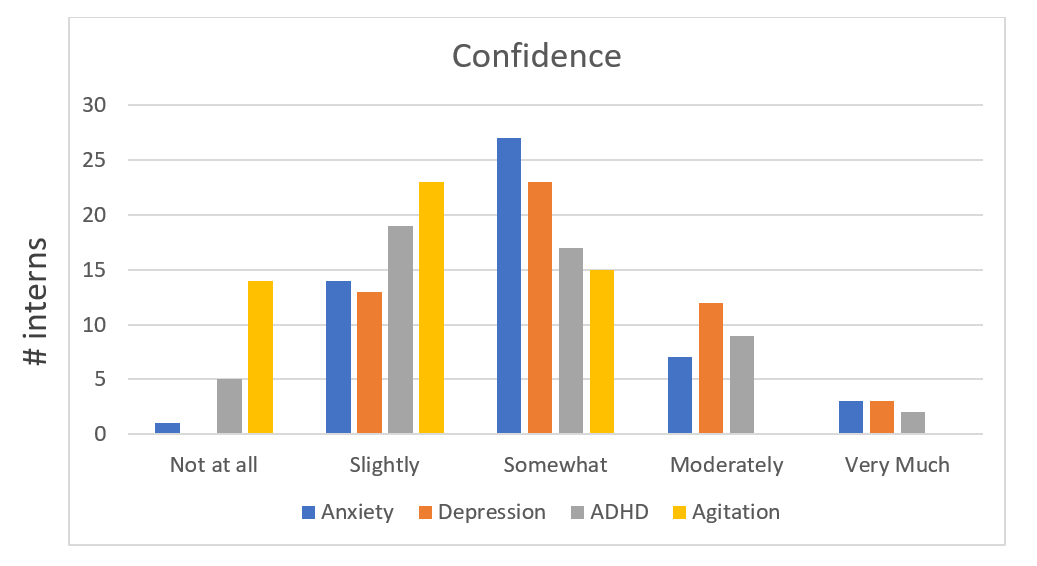Medical Education: Resident
Medical Education 15: Resident 6
510 - Intern Confidence and Competency in Behavioral Health Care and Perceived Value of Ongoing Behavioral Health Education at Entry to Residency
Publication Number: 510.423

Katie Lockwood, MD, MEd (she/her/hers)
Associate Professor of Pediatrics
CHOP/Penn
Ambler, Pennsylvania, United States
Presenting Author(s)
Background:
Behavioral health education is necessary to meet one of the ACGME Entrustable Professional Activities (EPA 9) yet is executed variably at different institutions. In building a novel behavioral health curriculum, it is important to understand trainees' baseline knowledge, interest in the subject matter, and perceived competency to better determine educational needs.
Objective: We sought to determine the prior experiences in behavioral health education of our incoming intern class. In addition, we wanted to determine the value this curriculum added to their residency training and in their future career goals, and how much this impacted their selection of a residency program. In aligning with competency-based education, we wanted to establish a baseline for self-reported competency, which we could measure over the course of residency training and a new longitudinal curriculum.
Design/Methods:
Incoming pediatric interns (N=59) at Children’s Hospital of Philadelphia were surveyed at orientation on their prior experiences with behavioral health and their perceptions of this education during residency. 52 (88%) completed an online survey via REDCap prior to starting clinical responsibilities or receiving behavioral health education at our institution. This study was IRB exempt.
Results: 94.2% said a behavioral health curriculum is “very much” valuable to their education and 84.6% said it is “very much” valuable in their future career. In addition, 51% “very much” or “moderately” factored the presence of a behavioral health curriculum in their residency selection. Most residents felt “somewhat” prepared and confident in caring for behavioral health patients at the start of residency. Confidence in assessing anxiety and depression was greater than ADHD and agitation (Figure 1). Nearly 60% lacked confidence in prescribing psychopharmacology, like SSRIs, to patients. 73.1% reported that they required “direct supervision” with behavioral health patients.
Conclusion(s):
Pediatric interns have been exposed to behavioral health education prior to starting residency and are appropriately aware of their need for direct supervision as interns. Interns value behavioral health education both for their training and career and therefore consider this in selecting a training program. A behavioral health curriculum should educate on initiation of psychopharmacology and appropriate referrals to therapy, which may not be a focus of medical school behavioral health curricula. Future research should examine how the perceived value of this curriculum and behavioral health competency changes over time.
